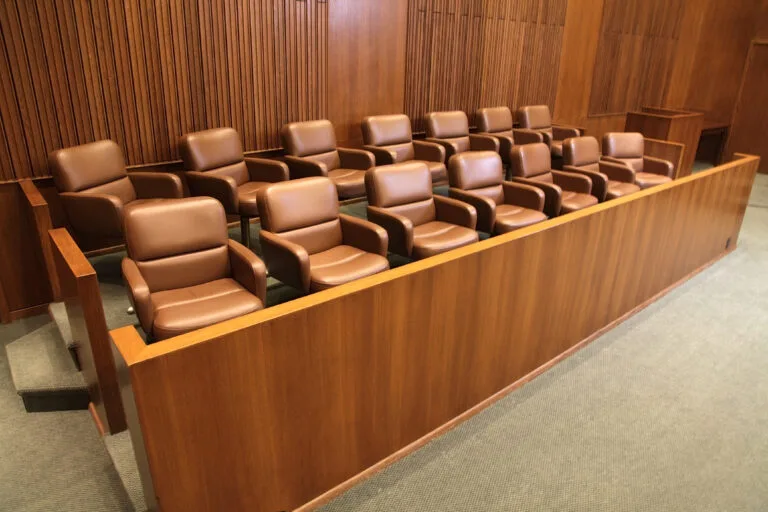Assuming a criminal defendant’s case is not dismissed or deferred, that person has two choices: accept a plea or go to trial. If the defendant chooses to go to trial, the trial will need a finder of fact. Finders of fact listen to the evidence presented in a trial, make a decision on what really happened, and ultimately determine if a defendant is guilty or not. In rare cases, the prosecution and defendant can agree that a judge can be the finder of fact. In most cases, six to twelve members of the defendant’s community will serve as the finders of fact. Together, these people are known as the jury.
Each trial begins with jury selection, or as lawyers call it, voir dire (pronounced vwah dear). During jury selection, the judge, the prosecutor, and the defense attorney have the opportunity to ask potential jurors questions to determine their fitness to sit on a jury. Based on the answers the potential jurors give the lawyers may remove potential jurors from the jury for two reasons.
The first reason lawyers remove potential jurors is called a challenge for cause. The causes referenced are set by law and are mostly to protect against potential jurors who say they cannot be fair to one of the two sides. If you are removed from a jury for cause, it could be because you said something that one or both of the parties found highly disturbing. It also could be as simple as a lack of physical fitness to be a juror. Lawyers don’t want jurors with emphysema dragging oxygen tanks into the courtroom distracting other jurors from the case. Lawyers can remove as many potential jurors for cause as is necessary.
The second reason lawyers remove potential jurors is called a peremptory challenge. Peremptory challenges allow lawyers to remove potential jurors from the panel for any reason whatsoever1 without having to give any explanation. Each lawyer is granted a set number of peremptory challenges. The number of peremptory challenges a lawyer gets is determined by the location of the trial and the severity of the charges.
If you were kicked off of jury duty, there is a good chance that it was via a peremptory challenge. Lawyers use their peremptory challenges for any and all reasons. For example, I have kicked people off of juries for the following reasons: Not believing the American Revolution actually happened; Not wanting to be a juror; Being too eager to be a juror; Believing in mythological creatures and that stories like Lord of the Rings actually happened; Falling asleep during jury selection; Staring for too long at their shoes; Being an engineer; Saying they drink alcohol on a regular basis; Claiming they never drink alcohol; among many other reasons.
To expand on the last two examples, as a prosecutor in a drunk driving case, I kicked someone off the jury for saying they drink alcohol on a daily basis. I did this because I thought that person might sympathize with the defendant and find the defendant not guilty even if I proved the case beyond a reasonable doubt. On the other hand, as a defense attorney I would be inclined to kick someone off a jury if they said they never drink alcohol. Depending on what else I can learn about that person, not drinking alcohol might imply that person holds themselves to a high, almost pure standard. If they do that to themselves, will they hold it against my client if they made a mistake – even if the prosecution doesn’t prove their case?
Peremptory challenges are strategic. Both sides want to pack the jury with people they think will view their arguments in the most favorable light. Depending on the type of case the jury will hear, lawyers will look for different qualities in their potential jurors. So, if you did get kicked off of a jury – don’t take it personally. You could be the exact right juror for one type of case but an awful juror for another.
- Except immutable characteristics like race or gender. ↩︎
